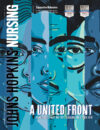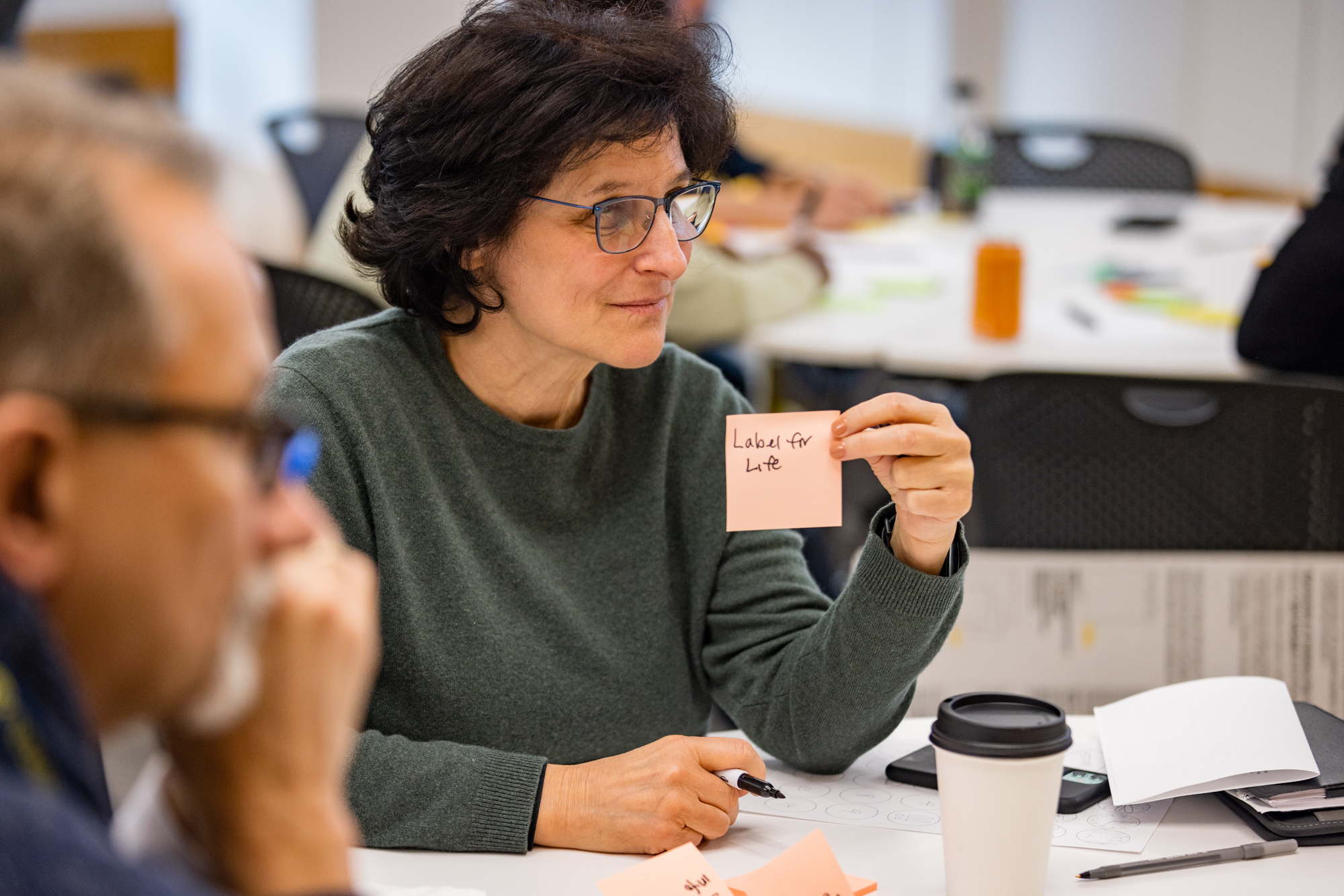Deborah Gross’ research on child mental health puts the emphasis, and decisions, in the right places
Professor Deborah Gross, DNSc, MS, RN, FAAN, is rightly proud of her baby.
Through a change in venue, the usual growing pains, flexibility, sweat, extensive research, and maybe even a little tough love, the Chicago Parent Program she helped conceive at Rush University and brought to Baltimore and the Johns Hopkins School of Nursing is standing on its own. And walking, from Chicago to Baltimore and now to U.S. cities in between and beyond its birthplaces.
CPP has also become a pillar of RESILIENCE RRTC, or the Research and Education to support the Science of Independent Living for Inclusion and Engagement: National Center of Excellence Rehabilitation Research and Training Center, all of that funded by the National Institute on Disability, Independent Living, and Rehabilitation Research. Gross is RESILIENCE RRTC’s director.
The center’s main initiatives have been testing new ways of delivering CPP as well as CAPABLE (short for Community Aging in Place—Advancing Better Living for Elders), a research program long spearheaded by Dean Sarah Szanton, PhD, RN, FAAN, that improves independence while also cutting health care costs. RESILIENCE RRTC is working to expand its reach through both policy initiatives and plain-language fact sheets for health care organizations and the community.
“Parenting is the world’s largest on-the-job training program.”
Gross, the Leonard and Helen R. Stulman Endowed Professor in Psychiatric and Mental Health Nursing, gets to nurture her own research while being handy with indispensable knowledge on how to germinate others’ great ideas, get them into the ground (the communities that need them), water, feed and watch them grow too.
“As director, I get the chance to work with so many smart and amazing people doing impactful work in the disability community—it’s a great job,” Gross explains. “I’m also really enjoying the opportunity to share what I’ve learned about what makes a program like the Chicago Parent Program scalable across different communities, populations, and human service organizations.”
And it’s a great spot from which to watch CPP do … exactly what she’d hoped it would, and more.
[What Nurses Need to Know: Parenting in America Today]
Designed for parents of children 2-8 years old, CPP has been proven to lessen behavioral problems at home and in schools, strengthen the bond between parent and child, and offer peer-to-peer support for low-income parents, many whose own upbringing involved violence or other trauma. It does so without talking down to, or over, those parents. “The first thing we tell group leaders is, ‘You cannot be the expert about somebody else’s child. Your job is to help them tailor strategies to achieve their goals.’ It changes the whole dynamic.”
The program entered the Baltimore City Schools as a 2014-2017 study with support from six private foundations, including the Fund for Educational Excellence, a community organization. “It’s turned into this amazing partnership,” Gross says. “When the study was over, the Fund continued to manage the program in the city schools. All of the schools continued to want to run the program, and the district is now helping to pay for it. … It’s all being managed by the community and the district, not us. And that’s what you want to have happen with research in a community. You want it to be something that, once it’s done, it stays with the community.”
“You cannot change children without parents. Parents are not the cause of the problem. They’re the solution.”
In fact, of the Baltimore schools’ ownership of CPP, Gross says, “I’ve been doing research for decades. It’s probably the thing I’m most proud of.”
Similar initiatives have been greeted with open arms at the Cleveland Clinic, in Cincinnati, in Detroit, Rochester, NY, and elsewhere. “So many agencies feel that they’re missing something important from their toolbox for addressing the needs of families raising young children in low-income communities.”
Next for Gross and her colleagues is to study how the program can be scaled for even greater impact on communities. The signs are there. But as in parenting, the job is never really done.
“[Humorist] Irma Bombeck used to say, ‘Parenting is the world’s largest on-the-job training program.’ And if you had truly great parents, you’re in a small minority of people,” Gross insists. “Most of us have had parents who were highly fallible, who did the best that they could but could have done a lot better for us. I’m one of them.”
Still, “You cannot change children without parents. Parents are not the cause of the problem. They’re the solution.”
CPP offers those parents a realistic, real-world, and even unique set of hacks.
“There are a lot of parenting programs out there—probably thousands of them,” Gross says. “I think what makes [CPP] most attractive is a few things: It was designed from the beginning with parents from low-income communities. You don’t have to have a graduate degree in order to implement the program. And it expands your workforce tremendously and expands the workforce from the community where you want to have a positive impact.”
Read More

